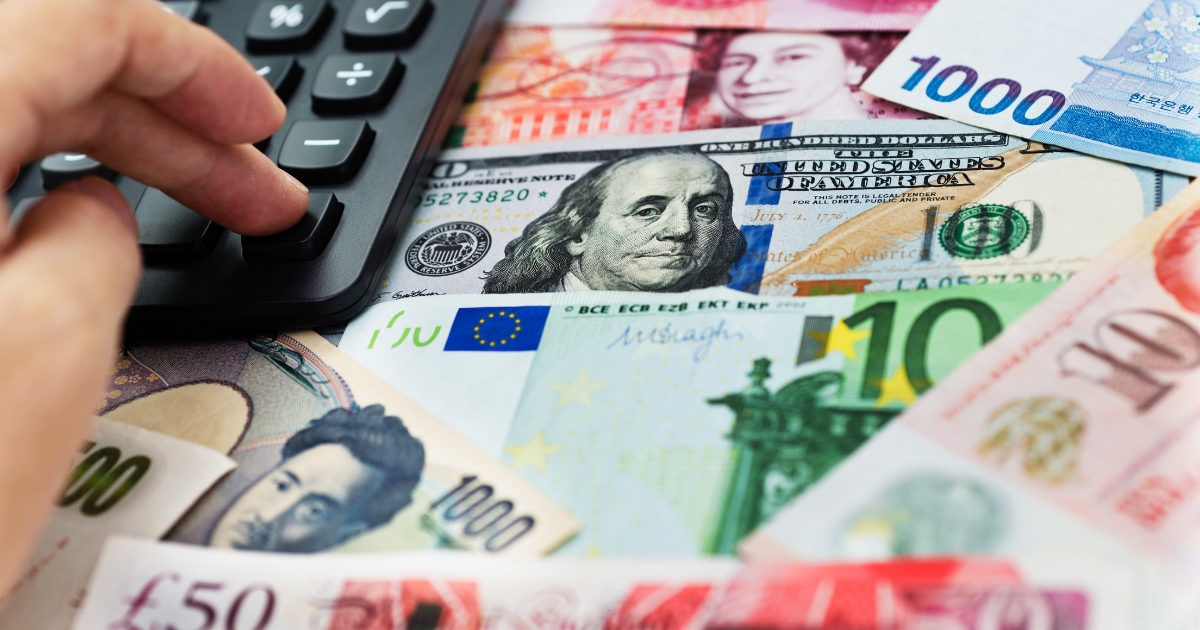
Travelling abroad and returning with leftover foreign currency is a common situation for many South Africans. Whether you have euros from a European trip, dollars from a business visit to the US, or any other currency, knowing where to exchange your money can save you time and help you get the best rates. South Africa offers various options for currency exchange, each with its own benefits and considerations. So, where can you find the most convenient and cost-effective places to exchange your foreign money in South Africa?
Key Takeaways
- Plan Ahead for Currency Exchange: It’s advisable to exchange your foreign currency at your bank before travelling. This can save you on fees and offer better rates compared to airport kiosks and exchange counters.
- Use Cards Wisely Abroad: Be mindful of foreign transaction fees when using credit or debit cards. Consider getting a card that doesn’t charge these fees to avoid extra costs.
- Monitor and Compare Rates: Keep an eye on exchange rates and compare offers from banks, exchange bureaux, and online platforms. Timing your exchange well and choosing options with lower fees can help maximise your value.
About Arcadia Finance
Secure your loan effortlessly with Arcadia Finance. Enjoy no application fees and select from 19 reputable lenders, each fully compliant with South Africa’s National Credit Regulator standards. Benefit from a streamlined process and trustworthy options tailored to your financial needs.
How Does Currency Exchange Work?
Currency exchange in South Africa operates much like trading any commodity, with the value of one currency fluctuation against another due to various economic factors. When exchanging currency, you can think of it as similar to buying produce at a grocery store, where prices fluctuate based on supply and demand. For example, you might get more for your money when rates are favourable, just as you would get more oranges for your rand when prices are lower.
Exchange rates change frequently, so it’s crucial to seek the best possible rates and minimise fees to maximise the value of your exchange. South African banks such as Standard Bank, FNB, and Absa offer a variety of foreign exchange services, including ordering foreign currency online and in-branch exchanges. This ensures that both international travellers and local residents can conveniently meet their currency needs.
Who Can Purchase Foreign Banknotes?
To acquire foreign banknotes, you need to:
- Plan to Travel Abroad: Ensure that you are travelling for leisure or work within 60 days of the purchase.
- Be at Least 18 Years Old: You must be of legal age to make the transaction.
- Hold a Valid Passport: A passport is required for identification purposes.
- Possess a Valid Identity Document or Card: If you are not a Nedbank customer, you will need a valid ID document or card.
- Provide an Omnibus Letter for Business Travel: If your travel is for business purposes, you must present an omnibus letter from a legitimate business.
- Have the Necessary Travel Documents: These include a valid e-ticket, bus ticket, or proof of border crossing if you are travelling by car.
Navigating the world of foreign exchange can be tricky, especially with the risk of counterfeit money. Learn how to spot counterfeit money and protect yourself from scams, ensuring every transaction is legitimate and secure.
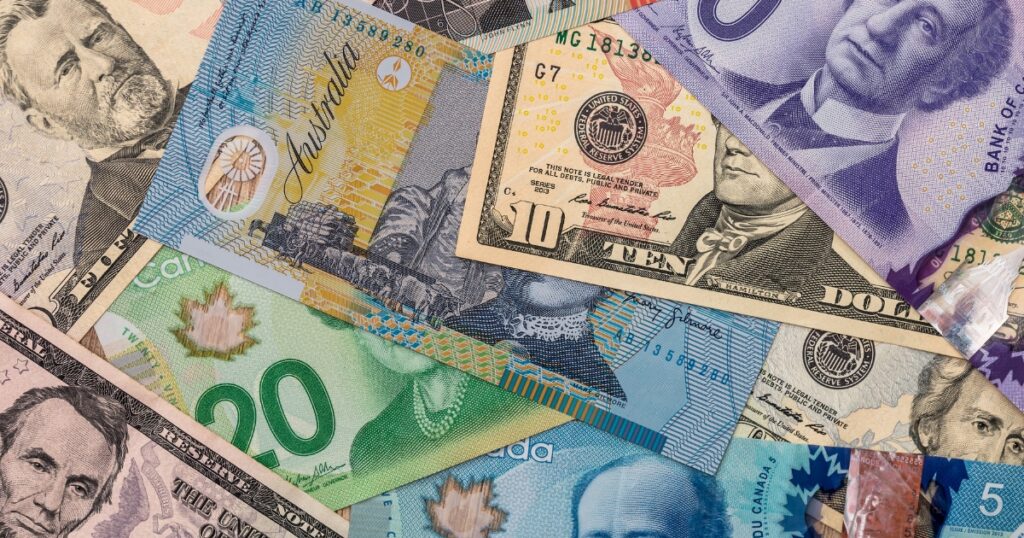
Types of Foreign Currency
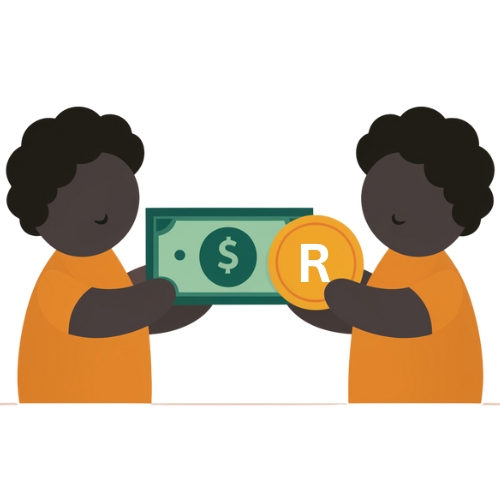
Cash
Fluctuating exchange rates can significantly affect your holiday budget, making it important to understand the value of the South African Rand. Carrying some local currency is one of the easiest ways to manage expenses abroad. Major currency exchange providers usually have a good supply of major currencies, and you can order less common ones in advance. Using cash helps you avoid extra charges and keeps your travel funds simple to manage. However, be cautious not to carry all your cash while exploring; only take what you need and secure the rest at your accommodation.
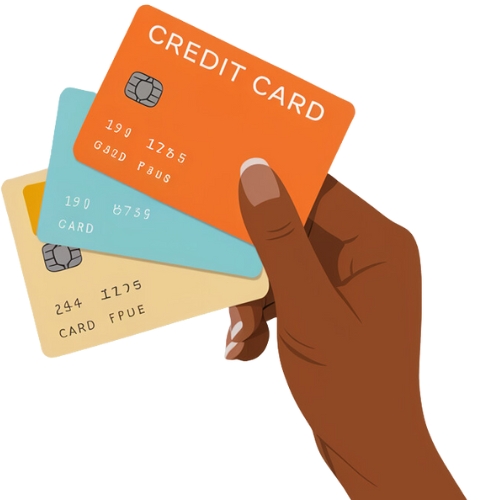
Credit and Debit Cards
While travellers’ cheques were once popular for holiday payments, credit cards now generally replace them for most transactions abroad. Using credit or debit cards means you don’t need to carry large amounts of cash and can benefit from competitive bank exchange rates. Be mindful of possible surcharges, such as fees of 3% to 3.5% on international purchases and additional charges for ATM withdrawals. Card acceptance can vary by location, and ATM networks may not be widespread, so it’s wise to carry both cash and cards. Always inform your bank of your travel plans to avoid having your account frozen due to unusual activity.
While exploring options for exchanging foreign money in South Africa, consider the benefits of modern payment technologies. Learn how to use Apple Pay, which offers a seamless way to manage transactions without the need for physical currency exchanges.
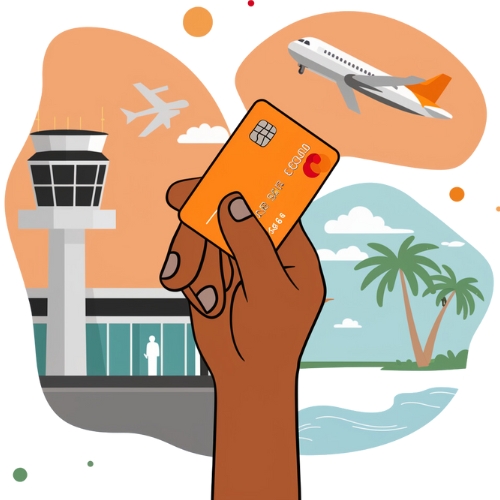
Cash Passport / Pre-loaded Travel Card
Multi-currency cash passports are ideal for travellers visiting multiple countries, allowing you to load several currencies onto one card at fixed exchange rates. These cards can be topped up as needed and managed online, protecting you from currency fluctuations. Even if you’re visiting a single destination, cash passports offer a secure alternative to cash, as they can be easily replaced if lost or stolen. You can withdraw money at participating ATMs, and many travellers now prefer pre-loaded travel cards for their convenience and security. These cards can be ordered online and delivered to your address.
For those planning a longer stay in South Africa or handling larger sums of money, opening a local bank account can be highly beneficial. Learn how to open a bank account in South Africa to streamline your financial transactions and access local banking services with ease.
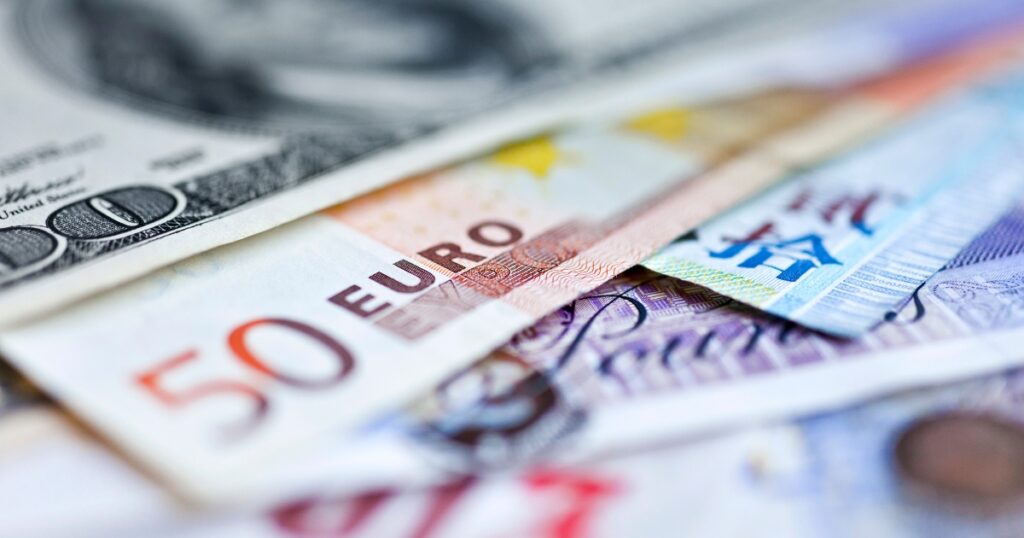
Where to Exchange Foreign Currency
To help you save on currency exchange rates and avoid unnecessary fees for international transactions, use the following tips for your next trip abroad. Keeping more money in your pocket means more to spend on your adventures.
Obtain Foreign Currency from Your Bank Before Departing South Africa
To minimise fees associated with currency exchange, consider visiting your bank before you leave South Africa to exchange rands for your destination’s currency. Major South African banks like Standard Bank, FNB, and ABSA typically offer foreign exchange services with no extra fees beyond the current exchange rate. These banks often have a variety of currencies in stock, but it’s best to order less common currencies in advance.
You can obtain foreign cash at your local branch or request currency online or via phone for home delivery. Depending on the bank and the specific currency, some exchanges might be available for immediate pickup, while others may require a few days’ notice.
Steer Clear of Currency Exchange Counters at Airports
If you run out of time to get cash at the bank before your trip, you might be tempted to use an airport kiosk or exchange counter. While convenient, these options usually offer significantly less favourable exchange rates compared to your bank.
For instance, if your bank offers an exchange rate of £72 per R1000, an airport kiosk might provide only £67 per R1000, resulting in fewer pounds for your rands. Exchanging at your home bank could save you an extra £5.
Using a currency conversion calculator can help you compare rates and make informed decisions. Airport kiosks often charge higher fees, sometimes hidden within their less favourable rates. If you need cash at the airport, the extra cost for convenience might be unavoidable, but planning ahead can help you avoid these high-cost options.
Use Your Card Wisely to Avoid Foreign Transaction Fees
Upon arriving at your destination, using your credit or debit card might seem like a convenient way to manage your money. However, this can result in additional charges. Depending on your bank and card, you might incur up to a 3% fee on each purchase made abroad. For instance, spending R10,000 with a card that has a 3% foreign transaction fee would add R300 in charges.
To avoid these fees, check your bank or card issuer’s website before you travel. Alternatively, contact your bank to ask about any foreign transaction fees for your card. If you have time, consider applying for a credit card that doesn’t charge foreign transaction fees and offers good travel rewards.
Be Aware of ATM Fees and Withdrawal Limits
Even with favourable exchange rates at foreign ATMs, check your bank’s fees and withdrawal limits. Contact your bank to learn about daily ATM withdrawal limits and request an increase if needed. Also, inquire about fees for using out-of-network ATMs.
Some international ATMs might have lower withdrawal limits than your bank. For example, your bank may allow R5000 daily, but a foreign ATM might only permit R3000. Planning ahead ensures you have sufficient cash during your travels.
Opt to Pay in Local Currency to Avoid Conversion Fees
Some international merchants offer the option to pay in either the local currency or South African rands. Always opt to pay in the local currency when given the choice. Paying in rands can result in additional conversion fees and less favourable exchange rates. Though paying in rands might seem convenient, it will ultimately cost more.
Leverage International Banking Apps
Frequent international travellers should consider using apps like Wise (formerly TransferWise), Revolut, or similar to manage their finances. These apps allow you to hold multiple currencies and transfer money between accounts in different countries.
With a multi-currency account, you can maintain balances in various currencies, which is useful if you frequently visit places like the UK or Australia, or holiday in France. This approach helps manage your funds more efficiently and reduce the impact of currency fluctuations.
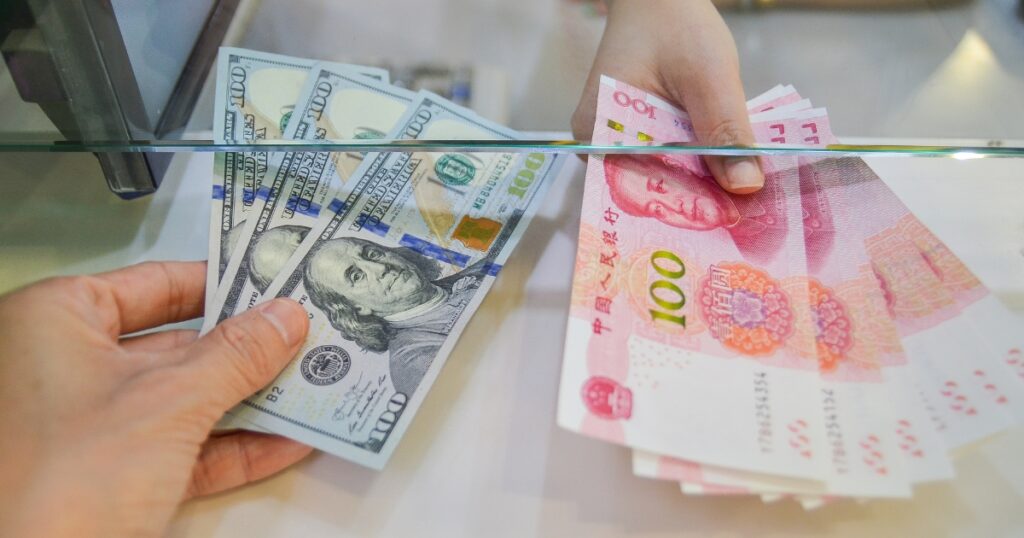
Tips for Getting the Best Exchange Rates
When exchanging foreign currency in South Africa, securing the best exchange rates can significantly impact how much money you ultimately receive. Here are some essential tips to help you get the most favourable rates:
Comparing Rates
One of the most effective ways to secure the best exchange rate is by comparing rates from different providers. Banks, currency exchange bureaux, and online platforms often offer varying rates. It’s beneficial to shop around and check multiple sources before making a decision. Use online comparison tools to quickly identify which provider offers the best deal on the day you plan to exchange your money. Remember that some providers may advertise attractive rates but include hidden fees, so always review the fine print and ask for the total cost of the transaction.
If you’re exchanging currencies for travel or investment, knowing How Much is the Rand Worth? helps you make informed decisions in foreign exchange transactions.
Timing Your Exchange
The exchange rate market is constantly fluctuating, influenced by factors such as economic data, geopolitical events, and market sentiment. Timing your currency exchange can have a substantial impact on the rate you receive. Monitor foreign exchange market trends and try to exchange your money when rates are most favourable. Avoid exchanging large sums at airports or tourist areas where rates are typically higher due to convenience. If possible, plan your exchange in advance and track rates over a few days to spot a good opportunity.
Avoiding High Fees
Fees can significantly reduce the amount of money you receive when exchanging currency. These fees may include service charges, commission, or handling fees. To avoid high fees, seek out providers that offer transparent pricing with no hidden costs. Some banks and exchange bureaux might waive fees for customers or for larger exchanges. Online currency exchange services often have lower fees compared to traditional banks and bureaux. Ensure you calculate the total cost of the transaction, including any fees, to determine the most cost-effective option.
By following these tips, comparing rates, timing your exchange wisely, and avoiding high fees, you can maximise the amount of foreign currency you receive and ensure a smoother, more economical exchange experience.
Conclusion
Before setting off on your next international trip, it’s crucial to plan for your daily expenses. By familiarising yourself with currency exchange rates, foreign transaction fees, ATM withdrawal limits, and other aspects of using foreign currencies, you can save both money and time, making your travel experience more enjoyable.
Frequently Asked Questions
The best place to exchange foreign currency is generally at your bank. Major South African banks like Standard Bank, FNB, and Absa offer competitive rates and low fees. Ordering currency online from your bank in advance can help you get the best deal. Avoid airport kiosks and exchange counters, as they usually offer less favourable rates.
Yes, banks in South Africa still exchange foreign currency. Major banks such as Standard Bank, FNB, Absa, and Nedbank offer foreign exchange services. You can exchange money at their branches, and some banks also provide online services for ordering foreign currency in advance.
Yes, you can exchange foreign currency at FNB. They provide a range of foreign exchange services, including buying and selling foreign banknotes, prepaid travel cards, and online ordering of foreign currency for in-branch collection.
In South Africa, you can exchange foreign notes at major banks like Standard Bank, FNB, Absa, and Nedbank. Additionally, currency exchange bureaux such as Travelex and Bidvest Bank, as well as some major hotels and airports, offer currency exchange services.
To exchange foreign currency, you typically need to provide a valid passport and a form of identification, such as an ID card. Some banks may also require proof of travel, such as an airline ticket, especially if you are purchasing foreign currency for travel purposes. Always check with your bank or exchange service for specific requirements.
Fast, uncomplicated, and trustworthy loan comparisons
At Arcadia Finance, you can compare loan offers from multiple lenders with no obligation and free of charge. Get a clear overview of your options and choose the best deal for you.
Fill out our form today to easily compare interest rates from 19 banks and find the right loan for you.


